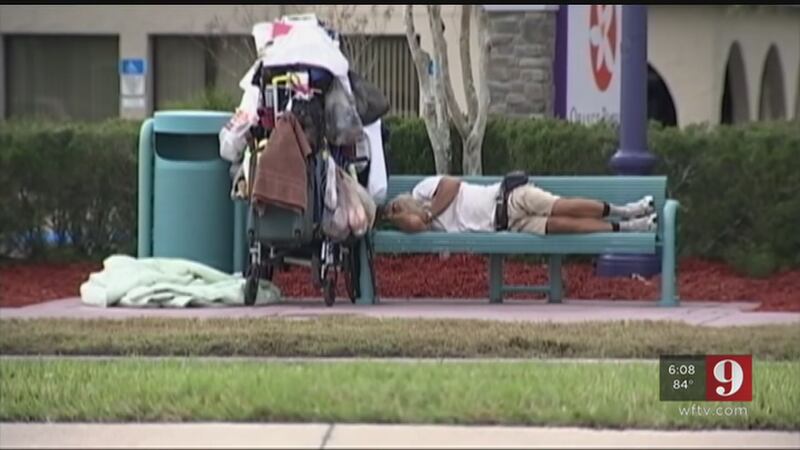OSCEOLA COUNTY, Fla. — Commissioners in Osceola County have agreed to take part in a study that will look into the possibility of creating a new type of homeless shelter.
On Monday, commissioners gave approval for the county to work with the Central Florida Commission on Homelessness. The agency wants to explore a new model called a "crisis care center," which would be different from a traditional homeless shelter.
“A way for the police, for example, if they find or identify someone who is homeless, where do they take them other than jail,” said commission chief executive officer Shelley Lauten.
The details still need to be worked out. Lauten said the idea is to provide services to get people into long term housing, not just a place to sleep for the night.
“All in one place, all under one roof, so that we make sure that people are getting the care they need and it's not haphazard,” Lauten said.
Lauten said she will ask neighboring communities, including Orange and Seminole counties, to take part in the research. It’s too early to know how the project would work or where it could be located. Lauten said it’s possible the study could even recommend the use of existing programs.
Osceola County doesn’t have a traditional homeless shelter. For the past few weeks, commissioners have discussed different ways to address the problem.
On Wednesday, we contacted all five commissioners and heard back from two: Cheryl Grieb and Fred Hawkins. Both said they are opposed to a traditional shelter because of concerns about finding an appropriate location and making the homeless problem worse.
Commissioners asked for an inventory of the current housing situation and to focus on families living in motels during Monday’s board meeting.
We found Elizabeth Aeder behind a closed down store off U.S. 192. She said she’s been homeless since 2013.
“Without ID, I can't get a proper job yet I go jail for panhandling,” said Aeder. “It's an utter outrage.”
The study group plans to hire a consultant. The project could cost up to $79,000 -- a cost that would be split between participants. Grieb said a private donor has pledged to cover about half of the costs.
The process could take about four to six months, according to the proposal documents.
Commission on Homelessness wants to explore creating a new type of shelter called a "crisis care center." #WFTV pic.twitter.com/DBZrxCmXUr
— Michael Lopardi (@MLopardiWFTV) August 23, 2017
Cox Media Group








